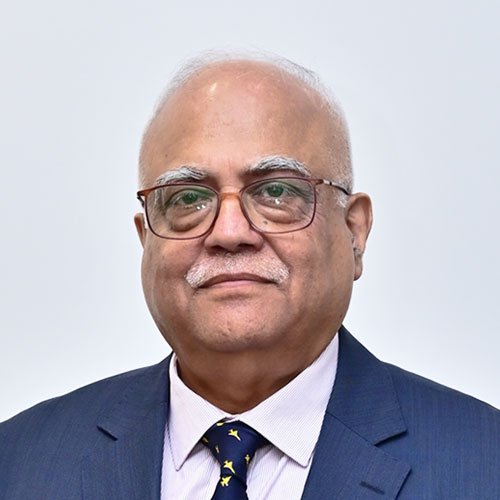Iranian Tragedy, What Next?
Muhammad Haroon Shaukat
05 June 2024


The tragic death of Iranian President Ebrahim Raisi in a helicopter crash on May 19th has plunged Iran into a period of uncertainty at a time when Iran is confronting serious internal and external challenges. In the immediate aftermath of the tragedy, there appeared no power vacuum. A clearly defined system for succession was followed and the first Vice President Mohammad Mokhber assumed office of the President, pending new presidential elections within 50 days. The electoral process has begun to unfold. Iran holds regular elections for the President and the Parliament with universal suffrage. The last parliamentary elections were held on March 1, 2024, which elected a hard-line parliament amid a low voter turnout.
In the present dispensation, the Supreme Leader Ayatollah Ali Khamenei is believed to have the final say on all major issues. He is also the commander-in-chief of the armed forces and controls the powerful Revolutionary Guard. Given the Supreme Leader’s power and influence, no significant changes are expected in Iran’s overall policies in the short run. Considering the advanced age of the Supreme Leader, the choice of the next President would be crucial as he may be his potential successor.
Late President Raisi was viewed as a hardliner and loyal protégé of the Supreme Leader. He rose through the ranks of Iran’s theocracy and judicial system. He was widely regarded as one of the leading contenders to succeed the Supreme Leader. Since he became the President in 2021, economic conditions in Iran remained hard. The worst internal challenge erupted in 2022, when a young activist Mahsa Amini, aged 22, died in the custody of morality police. She was detained for violating rules requiring women to wear hijab. Her death triggered countrywide violent protests. Women’s rights and the issue of headscarves were at the centre of protest marches, echoing slogans of “woman, life, freedom”. Those protests lasted several months and reportedly claimed more than 200 lives.
As the country is going through the electoral process to choose the next President, Iran is facing unprecedented external challenges. The principal threat is the ongoing murderous war in Gaza that took a dangerous turn with tit-for-tat strikes by Israel and Iran. The direct and audacious Iranian attack on Israel, through a barrage of around three hundred rockets, cruise and ballistic missiles, was triggered by an Israeli strike on the Iranian consulate in Damascus. Israel responded to that attack in a circumspect way. Having tested each other’s offensive and defensive capabilities, the two sides returned from the brink. Iran was able to establish its deterrence. New sanctions have been imposed on Iran by the US. Nonetheless, Iran has established itself as an important factor in the future dynamics of the Middle East.
President Raisi’s government demonstrated a great deal of wisdom and pragmatism in reaching a rapprochement with Saudi Arabia through the intermediary of China. The two countries have restored diplomatic relations. Under President Raisi, Iran sought to improve relations with neighbours. President Raisi’s high-profile and successful official visit to Pakistan in April 2024 confirms this trend. The two countries agreed to speedily finalise a Free Trade Agreement and to expand bilateral trade to $10 billion, in the next five years.
President Raisi also focussed on expanding ties with China and Russia as well as the emerging powers. Iran’s support for Russia in its war against Ukraine led to extraordinary military and economic cooperation. Iran reportedly provided Russia with more than 1,000 Shahed drones as well as tank and artillery rounds. The two have deepened economic ties in the face of US sanctions. Russia has overtaken China as the largest foreign investor in the Islamic Republic. Similarly, President Raisi prioritized cementing ties with China, Iran’s top trading partner. Last year, he became the first Iranian leader to undertake a state visit to Beijing in more than 20 years. Agreements worth billions of dollars were signed. In 2023, Iran’s oil exports shot up by 50 per cent, a five-year high, the vast majority of exports eventually went to China, often through intermediaries. Iran also enjoys strong relations with India. Under President Raisi, Iran has become a member of the Shanghai Cooperation Organization (SCO) as well as BRICS. His tragic death is not expected to significantly alter the course of Iran’s foreign policy, at least in the near term.
Iran is Pakistan’s important neighbour. The two countries enjoy strong bonds of common faith, history, culture, and traditions. President Raisi was a farsighted statesman and a good friend of Pakistan. It is in the interest of both neighbours to build on the momentum of cooperation generated by the last visit of President Raisi. Pakistan may also continue to play a positive role in promoting regional peace and stability as well as economic cooperation and connectivity.


The Centre for Aerospace & Security Studies (CASS) was established in July 2021 to inform policymakers and the public about issues related to aerospace and security from an independent, non-partisan and future-centric analytical lens.